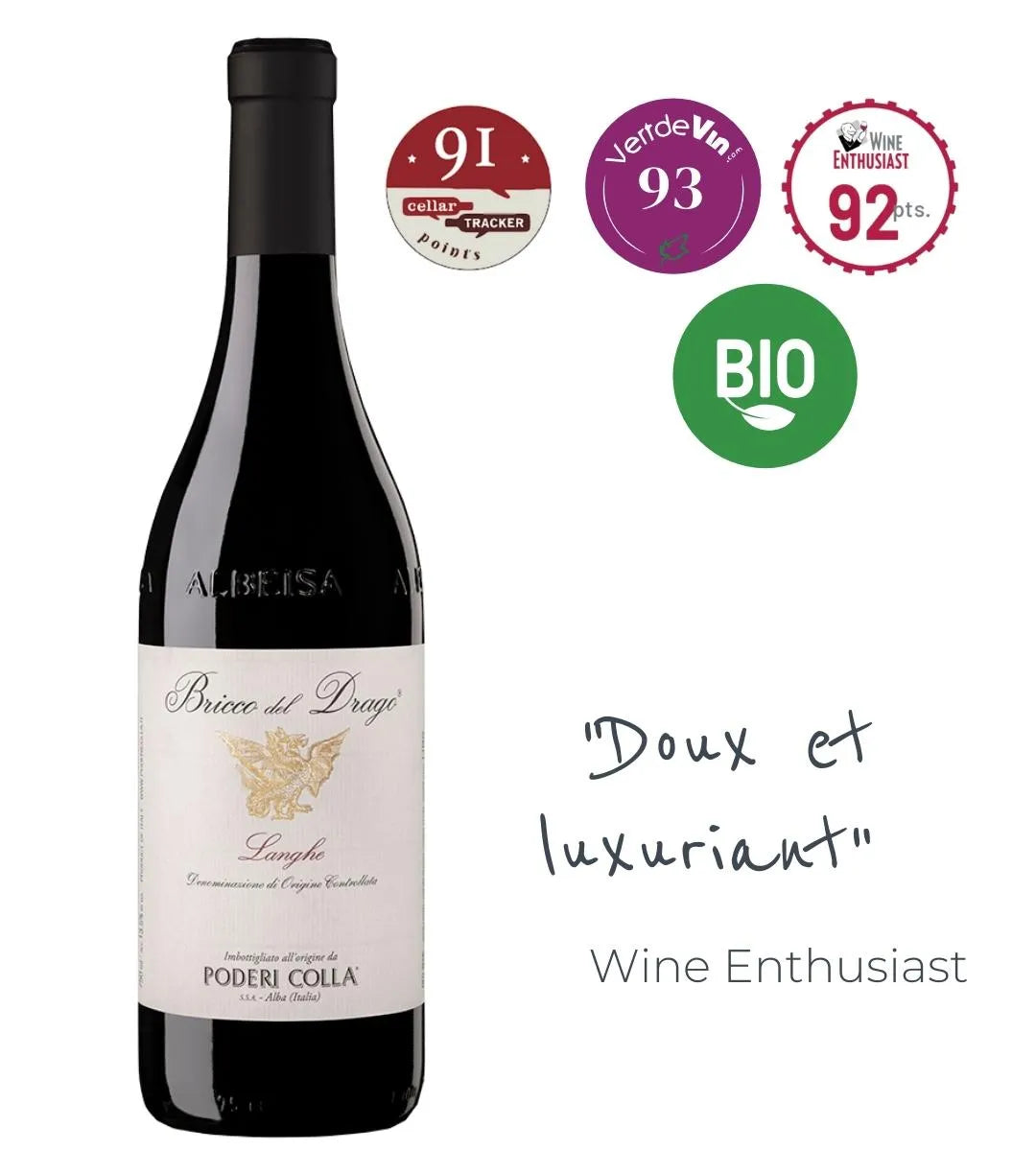
Dolcetto
Dolcetto
Dolcetto, the emblematic red grape variety of Italian Piedmont, produces fruity, supple and accessible wines. With its notes of blackberry, violet and licorice, it charms from the first sip. Less acidic than Barbera, softer than Nebbiolo, it seduces with its balance and drinkability. To discover in its flagship appellations like Dolcetto d'Alba or Dogliani, in artisanal cuvées.
Dolcetto
This grape variety, Dolcetto, seduces with its simplicity, its gourmandise and its accessibility. Typically Piedmontese, it still too often remains in the shadow of Nebbiolo and Barbera, its prestigious cousins. And yet, it amply deserves to be rediscovered! Vinodelice offers you here an overview of this red grape variety with discrete but irresistible charm. Origin, styles, prices, pairings and tasting advice: everything you need to know to fully appreciate Dolcetto.
Origins of Dolcetto
Dolcetto is a red grape variety typical of northwestern Italy, more precisely from the Piedmont region. Its name, which means "little sweet," evokes the natural sweetness of the grape, but should not be misleading: the wines obtained are dry, often structured, and marked by beautiful aromatic intensity.
Dolcetto is cultivated mainly on the Langhe hills, between the towns of Dogliani and Alba. It is an early grape variety, with thick skin, that flourishes perfectly in cooler areas. It constitutes one of the historical pillars of Piedmontese viticulture, often reserved for local consumption, which makes it an authentic and unpretentious wine.
Two appellations stand out:
Dolcetto di Dogliani DOCG: more powerful, structured and deep wines.
Dolcetto d'Alba DOC: more fruity, supple cuvées, ideal to drink young.
The great expressions of Dolcetto around the world and their characteristics
Italian wines: In its Piedmontese cradle, Dolcetto reveals all its splendor. Classic versions offer an intense purple robe and explosive aromas of blackberry, black cherry and violet, sometimes with a touch of licorice in the finish. The palate seduces with its silky tannins, discrete acidity and characteristic round texture.
The great appellations:
Dolcetto di Dogliani DOCG: the most structured version, ideal for a few years of aging
Dolcetto d'Alba DOC: lighter and fruitier, to drink in its youth
Dolcetto d'Asti DOC: fresh and lively, perfect as an aperitif
Some virtuosos like Elio Altare or Domenico Clerico offer exceptional cuvées with light barrel aging, adding complexity without sacrificing the typical fruitiness of the grape variety.
Universal aromatic signature:
Nose: black fruits (blackberry, blackcurrant), violet flowers, sometimes a touch of licorice
Palate: velvety texture, melted tannins, gourmand finish
Particularity: this immediate accessibility that makes it such a convivial wine
Even in its most ambitious expressions, Dolcetto keeps this fruity generosity that makes it immediately recognizable and terribly seductive.
The price of Dolcetto
Dolcetto establishes itself as one of the best safe values of Piedmont. While the prestigious Barolo and Barbaresco (made from Nebbiolo) often require substantial budgets and long years in the cellar before reaching their peak, Dolcetto wines offer immediate pleasure at remarkably affordable prices.
Wine Lovers Will Find Excellent Bottles Starting from €8 to €12, particularly within the Dolcetto d'Alba or Dolcetto di Dogliani appellations. These entry-level wines, while simple, already offer the fruity expressiveness and smoothness that are characteristic of the grape variety.
Between €15 and €25, you'll find more ambitious cuvées crafted by passionate winemakers who make the most of their plots. These wines reveal greater aromatic complexity while maintaining the easy-drinking charm that makes Dolcetto so appealing.
A few rare exceptions go beyond €30, usually terroir-driven cuvées or carefully crafted small-batch productions. Even in this premium segment, Dolcetto remains surprisingly accessible compared to other Piedmont wines of similar quality.
This reasonable pricing policy, combined with consistently high quality, makes Dolcetto the perfect companion for everyday meals as well as more festive occasions. It's also the ideal gateway to discovering the richness of Italian red wines without having to spend a fortune. A true gem for wine lovers seeking great value.
Food and Wine Pairings
With its soft tannins and generous fruit, Dolcetto is probably one of the easiest red wines to pair with food. It works wonders with traditional Italian cuisine: Neapolitan pizzas, tomato-based pasta dishes, lasagna, or mushroom risottos.
When it comes to meat, it pairs beautifully with grilled pork, Italian sausages, or even a simple steak. Hard cheeses like Parmigiano Reggiano or Pecorino also find an ideal partner in Dolcetto.
For serving, consider chilling it slightly (16–17°C / 60–63°F) to preserve its fresh, fruity character.
To learn more, feel free to check out our grape variety list!





